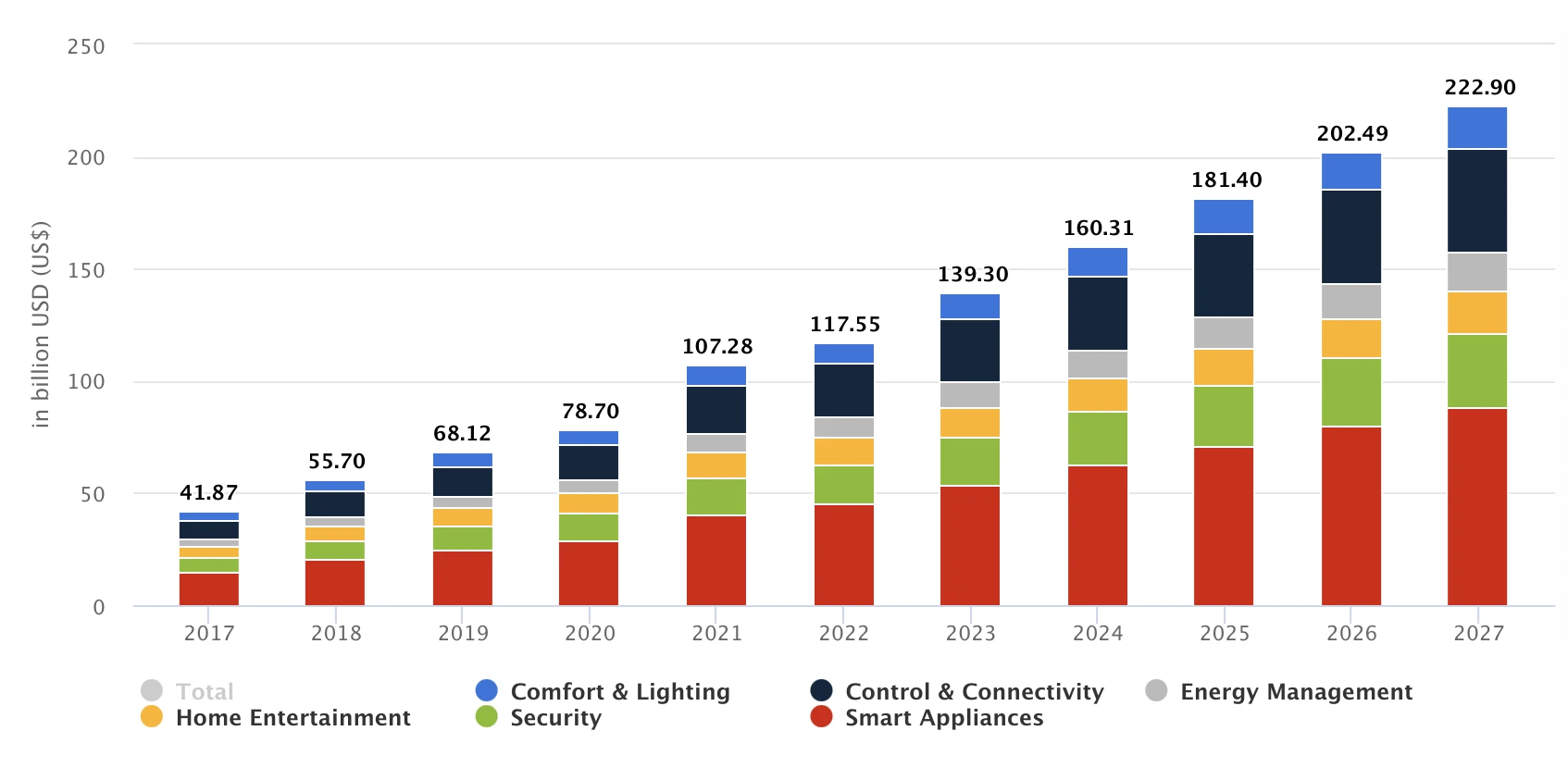Proptech Innovations: Revolutionizing Real Estate with Technology
Proptech, a portmanteau of "property" and "technology," refers to the innovative use of technology to revolutionize the real estate industry. It encompasses a wide range of digital tools, platforms, and applications that are transforming the way properties are bought, sold, managed, and utilized. The significance of proptech in the real estate industry cannot be overstated, as it is reshaping traditional practices, improving efficiency, and enhancing the overall experience for industry stakeholders and consumers alike.
According to a report by Center for Real Estate Technology &Innovation, proptech has gained significant traction in recent years, with global investment in real estate technology reaching a record-breaking $23.8 billion in 2020.1 This surge in investment highlights the growing recognition of the transformative potential of technology in the real estate sector. From property search and discovery to transaction processes, smart home technology integration, data analytics, and sustainable solutions, technology is impacting every facet of the industry.
The advent of proptech has facilitated a paradigm shift in property search and discovery. With the aid of artificial intelligence (AI) algorithms and big data analytics, real estate platforms can now provide personalized property recommendations based on individual preferences and requirements. This targeted approach saves time, enhances the search experience, and increases the likelihood of finding the perfect property match. Furthermore, virtual reality (VR) and augmented reality (AR) technologies enable prospective buyers to take immersive virtual tours of properties, offering a realistic and engaging experience even before setting foot on-site.
As technology continues to evolve, the real estate transaction processes have become more streamlined and efficient. Online platforms and mobile apps have revolutionized property listings, allowing sellers to reach a wider audience and buyers to browse listings at their convenience. Digital signatures and secure document sharing platforms have simplified the paperwork involved in transactions, reducing the need for physical meetings and enabling remote deals. Additionally, digital mortgage and financing solutions have expedited the approval process, making it faster and more convenient for buyers to secure funding for their property purchases.

Enhanced Property Search and Discovery
Proptech innovations have transformed the way people search for and discover properties by harnessing the power of artificial intelligence (AI) and big data analytics. With vast amounts of property data available, advanced algorithms can analyze user preferences, location data, and other relevant factors to provide personalized property recommendations. By leveraging AI, real estate platforms can now offer tailored suggestions, increasing the chances of finding the perfect property match for prospective buyers.
Moreover, virtual reality (VR) and augmented reality (AR) technologies are revolutionizing the property search experience by offering immersive virtual tours and visualization. VR allows potential buyers to virtually walk through properties, experiencing the layout and ambiance as if they were physically present. This technology enables users to explore multiple properties without the constraints of time and location. Similarly, AR overlays digital information onto the real-world environment, allowing users to visualize how a property can be transformed or furnished. The adoption of VR and AR in real estate has been steadily increasing, with the global market for VR in real estate projected to reach $4.26 billion by 2025, as reported by MarketsandMarkets.
These advancements in property search and discovery not only save time but also enhance the overall user experience. Prospective buyers can narrow down their options and make more informed decisions without the need for physically visiting numerous properties. By utilizing AI and big data for personalized recommendations and incorporating VR and AR for immersive visualization, proptech is reshaping the way people explore and evaluate properties, making the process more efficient and engaging.
Streamlined Transaction Processes
Proptech innovations have significantly streamlined the transaction processes in the real estate industry, offering online platforms and mobile apps that simplify various aspects of property transactions. Property listings can now be easily accessed and viewed online, allowing buyers to explore a wide range of options from the comfort of their homes. Furthermore, digital platforms enable secure document signing, eliminating the need for physical paperwork and expediting the process. According to a survey conducted by the National Association of Realtors, 97% of home buyers in the United States used online websites or mobile apps to search for properties in 2021, emphasizing the growing reliance on digital platforms for property transactions.2
Proptech innovations have significantly streamlined the transaction processes in the real estate industry.
In addition to property listings and document signing, proptech has also revolutionized mortgage and financing processes. Digital mortgage solutions provide a convenient and efficient way for buyers to apply for loans and receive approvals. By digitizing the mortgage application and approval process, proptech enables faster turnaround times, reducing the overall timeline for property transactions. According to a report by Allied Market Research, the global digital mortgage market is projected to reach $20.31 billion by 2027, driven by the increasing demand for seamless and digitized mortgage processes.3
The integration of online platforms, mobile apps, and digital solutions in transaction processes has simplified and expedited real estate transactions. Buyers can now access property information, sign documents securely, and obtain mortgage approvals with greater speed and convenience. These advancements in proptech not only save time and resources but also enhance transparency and efficiency in the real estate market.
Smart Home Technology Integration
Proptech innovations have led to the integration of smart home technology, leveraging Internet of Things (IoT) devices to enhance automation, energy efficiency, and security in residential properties. IoT devices such as smart thermostats, lighting systems, and security cameras enable homeowners to control and monitor their homes remotely, resulting in increased convenience and energy savings. According to a study by Statista, the global smart home market is expected to reach a value of $222.90 billion by 2027, indicating the growing adoption of smart home technology.4

In addition to IoT devices, connected systems and voice-controlled assistants have become integral to property management. Homeowners and property managers can now easily control and manage various aspects of a property through centralized systems. From adjusting temperature settings and scheduling maintenance tasks to monitoring security systems, these technologies offer a seamless and efficient approach to property management. According to a report by MarketsandMarkets, the global smart building market, which includes smart home technology, is projected to reach $121.6 billion by 2026, driven by the increasing demand for advanced and connected solutions in property management.5
The integration of smart home technology in the real estate industry brings numerous benefits, including improved energy efficiency, enhanced security, and streamlined property management. With IoT devices and connected systems, homeowners can enjoy greater control over their properties, leading to increased comfort, convenience, and cost savings. The growing market for smart home technology signifies the widespread recognition of its potential to revolutionize the way we live and manage our homes.
Data Analytics and Market Insights
Proptech has revolutionized the real estate industry by harnessing the power of data analytics to provide valuable insights into market trends and investment opportunities. By leveraging advanced analytics tools, real estate professionals can analyze large volumes of data, including market data, demographic information, and consumer behavior, to make informed decisions. According to a report by Deloitte, 72% of real estate organizations believe that data analytics is crucial for decision-making in the industry.
72% of real estate organizations believe that data analytics is crucial for decision-making in the industry.
One of the key benefits of data analytics in real estate is its ability to enable predictive analytics for demand forecasting and optimized property pricing strategies. By analyzing historical data and market indicators, real estate professionals can better understand buyer preferences, anticipate market shifts, and adjust pricing strategies accordingly. This data-driven approach enhances profitability and reduces risks associated with property investments. A study by PwC found that 84% of real estate companies consider data analytics essential for identifying and evaluating investment opportunities.
The integration of data analytics in the real estate industry provides a competitive edge and empowers professionals to make informed decisions. By leveraging the power of data, real estate professionals can gain valuable market insights, identify emerging trends, and maximize investment opportunities. The increasing adoption of data analytics in the real estate sector demonstrates its effectiveness in driving business growth and optimizing decision-making processes.
Sustainable and Green Solutions
Proptech innovations have paved the way for the integration of sustainable and green solutions in the real estate industry, addressing the growing need for environmentally friendly practices. One significant aspect of this transformation is the integration of renewable energy sources and eco-friendly technologies in real estate development. According to a report by the World Green Building Council, buildings account for approximately 39% of global energy consumption, making sustainable practices crucial for reducing carbon emissions.6 Proptech enables real estate developers to incorporate renewable energy systems like solar panels and wind turbines, leading to cleaner and more energy-efficient properties.
Furthermore, proptech solutions offer energy monitoring and efficiency tools that enable real estate professionals to track and optimize energy usage. By implementing smart meters, sensors, and automated systems, property owners can monitor energy consumption, identify areas of inefficiency, and implement energy-saving measures. This not only reduces the environmental impact but also contributes to significant cost savings. According to the U.S. Department of Energy, commercial buildings that implement energy management systems can achieve energy savings of up to 29%.7
The integration of sustainable and green solutions in the real estate industry through proptech is crucial for achieving long-term environmental goals and improving operational efficiency. By adopting eco-friendly technologies and practices, real estate professionals can minimize their carbon footprint, enhance energy efficiency, and contribute to a more sustainable future. The rising focus on sustainability in the real estate sector highlights the role of proptech in driving environmentally responsible development and operations.
Conclusion
In conclusion, the emergence of proptech has brought about a transformative impact on the real estate industry, revolutionizing traditional practices and opening up new possibilities. The integration of technology has streamlined property search and transaction processes, enhanced the customer experience, and provided valuable market insights. Data-driven analytics and predictive tools have empowered real estate professionals to make informed decisions and optimize their strategies.
To thrive in this changing landscape, real estate professionals must embrace proptech and adapt to the ongoing advancements. It is crucial to stay updated with the latest trends and leverage technology to gain a competitive edge. By embracing proptech solutions, real estate companies can enhance operational efficiency, deliver better customer experiences, and unlock new opportunities in a rapidly evolving market.
As the real estate industry continues to evolve, proptech will play a pivotal role in shaping its future. The transformative impact of technology on real estate is undeniable, and its potential for innovation is limitless. By embracing the power of proptech, the real estate industry can continue to revolutionize itself, adapt to changing customer needs, and drive growth in the digital era.
Looking for leads?
Free real estate leads for agents. Join Meet Agent today to follow up!




